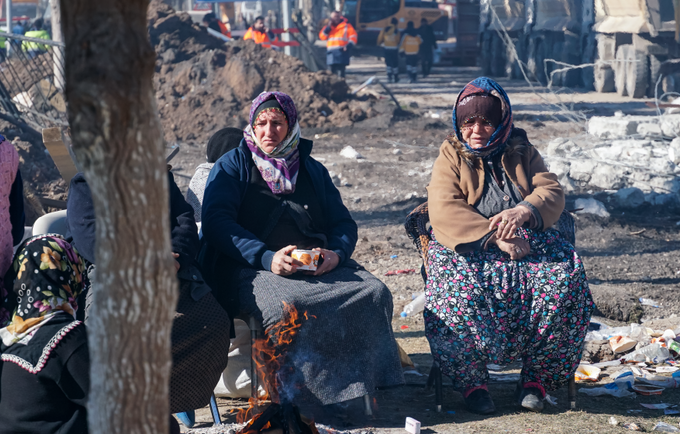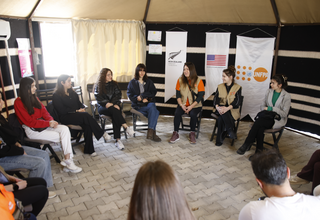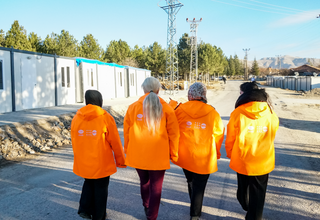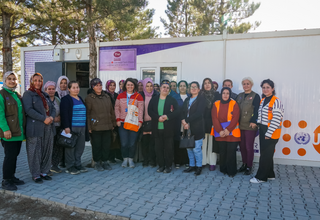TÜRKIYE – “We were too scared. We left our houses immediately and couldn’t take anything for the birth, not a single baby cloth. There was no one to communicate with and no place to stay. We felt helpless.”
Buseyna fled her home in Adıyaman, one of the cities worst hit by the devastating earthquakes that struck Türkiye and Syria on Monday. As the nearest hospitals were overwhelmed with casualties, Busenya traveled over 100 kilometers with her mother to Şanlıurfa, seeking help from UNFPA-supported women and girls’ safe space: It was there that she gave birth to a baby girl, Meha. “You reached us, helped with the birth, and gave me a bag with everything we needed,” she told UNFPA.
Early in the morning of 6 February, while most people were still sleeping, a powerful earthquake rocked Türkiye, carving death and destruction in the country’s southeast and in neighboring Syria. Hours later, as people were still being pulled from the rubble, a second quake struck – ending yet more lives, flattening houses, destroying hospitals, and trapping thousands of people in perilous, freezing conditions.
Among the estimated, 15,8 million people affected in Türkiye are over 226,000 pregnant women – of whom almost 25,000 are due to give birth in the next month. Tens of thousands of people have lost their homes and belongings, exposing particularly women, girls, and newborns to severe risks of illness and violence. The earthquakes ravaged the lives of people who often were already deeply vulnerable, including refugees from the war in Syria who were living in southern Türkiye and many internally displaced in northwest Syria.
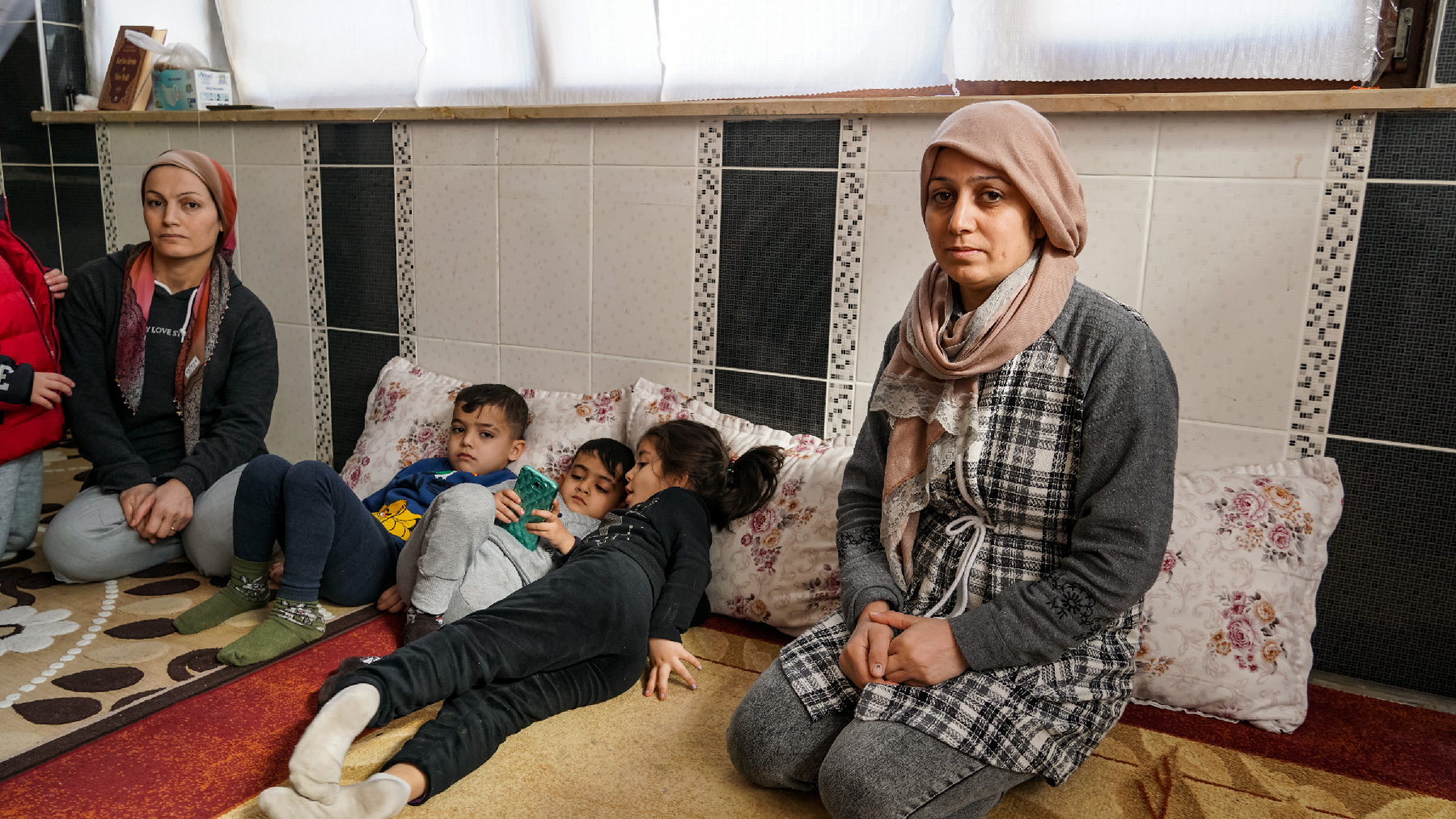
Pregnancy and childbirth don't stop in a crisis
For 22-year-old Hatice*, also from Şanlıurfa, the fear and shock of the quake caused her to go into early labour. She reached a nearby health facility in time to give birth safely, but quickly realized she didn’t have any supplies for her newborn: All her belongings were trapped in the debris of her former home. After receiving a UNFPA maternal health kit and postnatal counselling, she said, “I am still scared to go out of the hospital, but at least my baby is safe.”
As of 24 February, more than 43 thousand people have died in the crisis, and more than 108 thousand people injured: The figures are only expected to become clear as rescue teams clear the wreckage and the true scale of the disaster emerges.
With essential medical supplies wiped out across the two countries and hundreds of health centres, maternity facilities and safe spaces damaged, health-care providers are struggling to manage even life-threatening conditions. UNFPA is on the ground across affected areas in both Türkiye and Syria and remains dedicated to re-establishing services critical to the well-being and protection of millions of vulnerable, traumatized women and girls in urgent need of care and support.
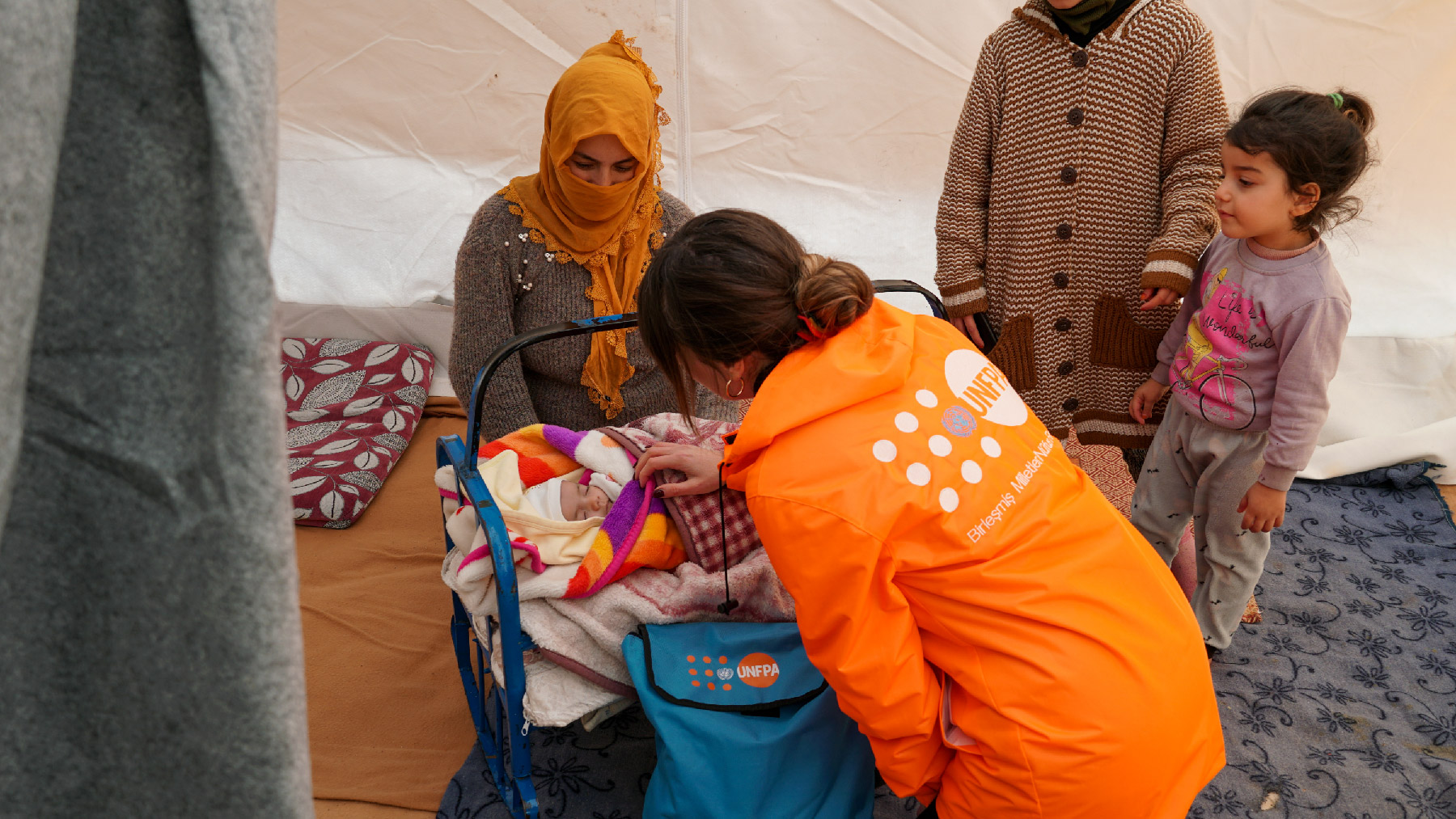
*Name changed for privacy and protection.
